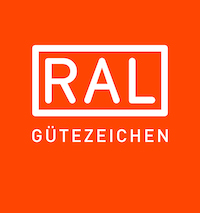A boom period for Germany during the Weimar Republic – calls for rationalisation within the economy
RAL has set the standard for continuously and independently controlled quality since 1925
Germany found itself in a period of economic recovery in 1925. The country had overcome the crisis after the First World War and the increasing level of automation and electrification was promoting technical advancements. In addition, mass industrial production was developing at a fast pace. These factors created the framework conditions and acted as the trigger for suppliers – and also consumers – to demand a orderly system for quality assurance labelling.
As a consequence of this rapid economic growth, German industry and the government of the Weimar Republic decided to:
- standardise and clarify quality assurance, testing and labelling conditions
- define unambiguous quality requirements and
- monitor adherence by companies
The goal was to introduce uniform requirements for products and services that applied to all those trading in a particular sector. An institution was sought that could issue these orderly regulations and act as an independent entity.


